What temperature does coil coating cure?
Coil coating is a high-performance manufacturing process utilized across various industries to enhance the durability, aesthetic appeal, and longevity of metal substrates. Among the crucial factors determining the success of coil coating is the temperature at which the curing process takes place. In this article, we will delve into the fascinating world of coil coating curing temperatures: their significance, optimal ranges, and the impact they have on the final product's quality. So, let's embark on this journey of exploration to unlock the secrets of achieving perfect coil coating results!
The Importance of Temperature in Coil Coating Curing (109 words):
Coil coating involves a delicate interplay of chemical reactions that solidify and bond the applied coating onto the metal substrate. Among the many variables influencing this process, temperature holds a position of utmost importance. The chosen temperature ensures proper curing, leading to not only an aesthetically pleasing finish but also enhanced durability and resistance to environmental factors. Proper temperature control during coil coating ensures that the coating material undergoes molecular changes, transforming it from a liquid state to a solid film that adheres uniformly to the substrate. For long-lasting and high-quality results, it is essential to understand the temperature requirements during the curing stage.
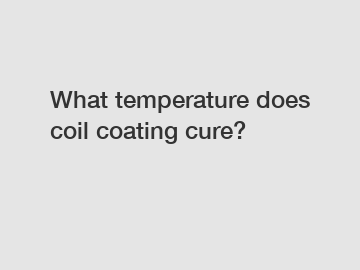
Optimal Temperatures for Coil Coating Curing (152 words):
While the exact temperature requirements may vary depending on the specific coating material and process, there are general guidelines to follow when it comes to coil coating curing. The curing temperature typically falls within a specified range specific to the coating type, with the generally recommended temperature range varying from 135 to 177 degrees Celsius (275 to 350 degrees Fahrenheit). This range ensures efficient polymerization and cross-linking of the coating material, resulting in a robust and long-lasting finish. However, it is essential to consult the coating manufacturer's guidelines to determine the exact temperature requirements for the specific coating being used.
Factors Influencing Optimal Temperature Selection (200 words):
Determining the ideal temperature for coil coating curing involves considering several factors. Firstly, the type of coating material being employed plays a crucial role. Different coatings have varying curing temperature requirements due to the properties of their unique formulations. Secondly, the metal substrate's thickness and conductivity affect the heat transfer and thus, an efficient curing environment. Thicker substrates might require slightly higher temperatures, ensuring the heat penetrates evenly throughout the coating film.
Additional resources:The Ultimate Guide to Stainless Steel Grab Rails
Which 15mm threaded product offers the best value for the purchase stage?
What is the composition of screen mesh?
SMM Analyst Secrets Unveiled: How to Pinpoint Effective Social Media Strategies?
Why do washing machines have glass lids?
Is PVC skirting any good?
What are the benefits of an exposed shower system?
Furthermore, the process setup, line speed, and oven conditions influence the curing temperature selection. It is vital to strike a balance between achieving the desired curing effect while preventing any negative impacts on the substrate, such as discoloration or deformation. Collaborating with qualified technicians or consulting the coating manufacturers can provide invaluable insights into optimizing the temperature control process.
Ensuring Quality and Reliability (130 words):
Maintaining optimal temperatures during coil coating curing is a vital aspect of achieving high-quality results. Deviations from the specified temperature range can lead to various issues, such as insufficient curing, poor adhesion, or even brittleness in the final film. Moreover, inconsistent temperature control can result in uneven curing, leading to a patchy or streaky appearance.
Therefore, investing in reliable temperature control technology is highly recommended. Utilizing advanced infrared thermometers, PID controllers, and automated sensors can improve accuracy and consistency during the curing process. Regular calibration and maintenance of the equipment are essential to ensure precise temperature control, enabling consistently excellent outcomes in every coil coating run.
Conclusion (120 words):
Mastering the temperature requirements for coil coating curing paves the way for enhanced productivity, superior aesthetics, and increased product durability. By adhering to the recommended temperature ranges, manufacturers can achieve exceptional results consistently. Dynamic technological advancements in temperature control systems offer greater precision, reliability, and ease in managing the curing process effectively. Collaborating with experienced professionals and relying on industry-leading manufacturers' instructions are key steps toward maximizing the benefits of coil coating, ensuring products stand the test of time with a visually stunning finish. So, remember, the right temperature is not just a number; it is the secret ingredient for an impeccable coil coated masterpiece!
If you want to learn more, please visit our website pvdf coating on aluminium, painted aluminium coil suppliers, coil for gutters.
Additional resources:Which Anti-Corrosive Primer is Best for Vehicles?
What is the most cost effective insulation?
What are the top advantages of tiny houses with slide outs for sale?
What is the best type of water valve?
Exploring Geotextile Applications in Peru's Infrastructure Projects
Unveiling the Mystery of Two Angel Heart Tombstone Designs!
Discover the Benefits of Polyvinylidene Fluoride Coating for Lasting Protection
267
0
0
Related Articles
-
212
0
0
-
227
0
0
-
Top 10 reasons to buy a folding sink faucet?
Are you considering buying a new sink faucet, but not sure which type to choose?
187
0
0
-
What are the top 5 practical uses of fiberglass mesh in construction?
Fiberglass mesh is a versatile material that finds numerous practical uses in construction.
218
0
0
-
The Ultimate Guide to Faucet Supplies: Everything You Need to Know
The Ultimate Guide to Faucet Supplies: Everything You Need to Know.
214
0
0
-
183
0
0
-
223
0
0
-
Maximizing Filtration Efficiency with Plastic Wire Cloth
When it comes to maximizing filtration efficiency, many industries rely on plastic wire cloth.
216
0
0



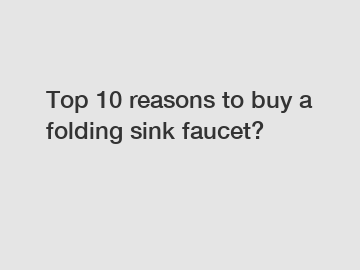
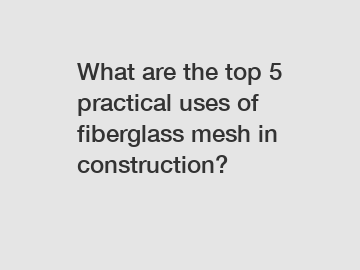
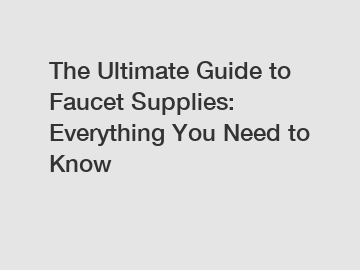
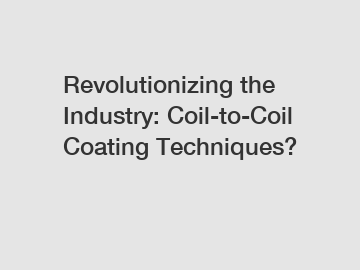
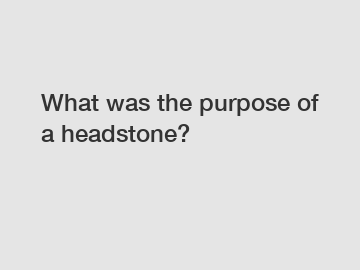
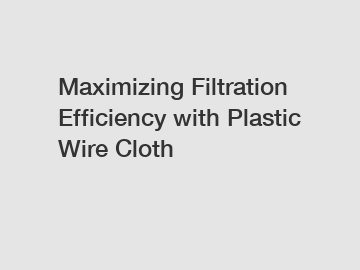
Comments
All Comments (0)